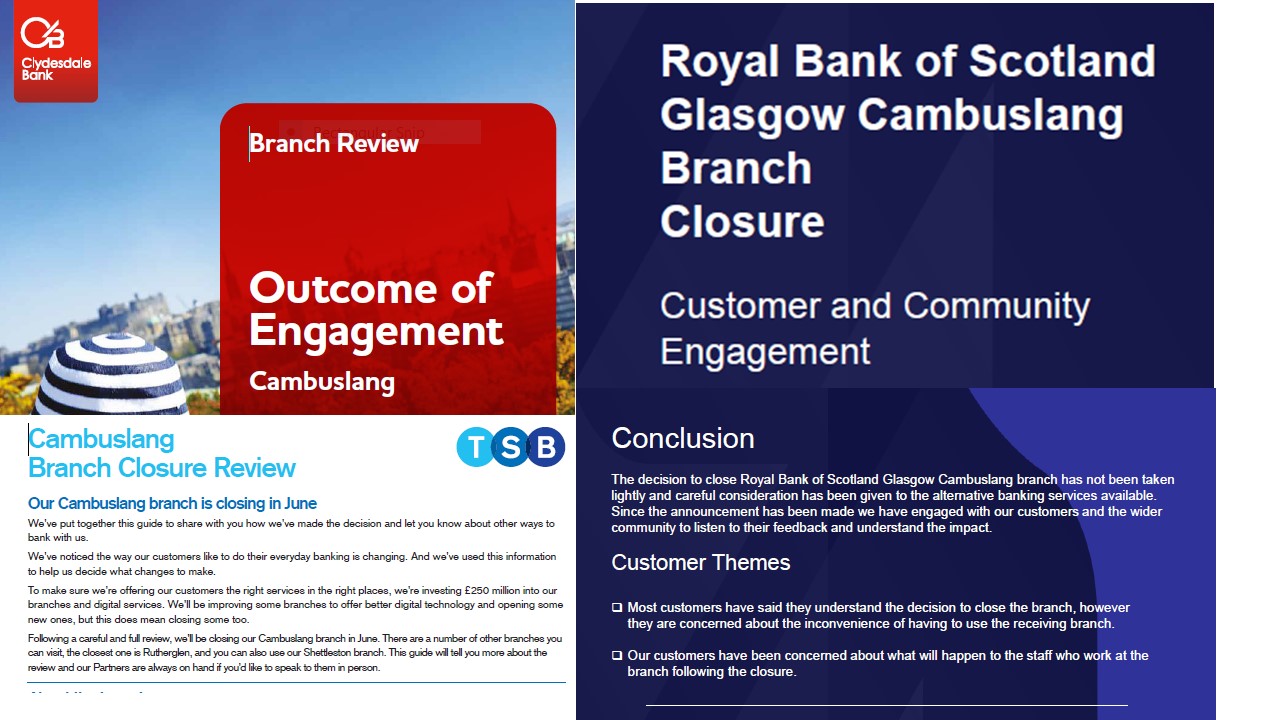A survey of the impact of the closure of all three bank branches in Cambuslang has found that the effects have been “intensely damaging for the town”. The survey was conducted for Cambuslang Community Council’s submission to the Scottish Affairs Committee on Access to Financial Services.
In 2016-17, three bank branches in Cambuslang – Clydesdale, RBS and TSB – closed within 18 months with little notice. This left Cambuslang, a town of 25,000 people, the fourth largest in South Lanarkshire, unbanked. The banks did not consult with community organisations such as Cambuslang Community Council, and they failed to assess the potential effects on the commercial viability of the town.
The survey research conducted by Cambuslang Community Council has found that branch closure has had overwhelmingly negative effects on local residents. Getting access to cash has become difficult. Neither the local Post Office nor other bank branches are an adequate alternative. The closures have been a cause of substantial financial hardship for a significant minority of residents.
The closures have also been damaging for businesses. Most businesses have experienced financial difficulties, and they have had major problems with alternative banking facilities. The majority have experienced a loss of trade since the branches were closed, and significant numbers of residents admit that they are shopping a lot less on Cambuslang Main Street. The commercial viability of the town centre has suffered.
Most local residents and business owners have not found the banks to be helpful in dealing with the closures.
Based on the survey research, the conclusions and recommendations of the submission by Cambuslang Community Council are as follows.
- People want to conduct banking business face-to-face at a local branch.
- The transition away from bank branches must take account of the needs of people and businesses, especially in communities like Cambuslang with major social deprivation.
- The impact of bank closures on the commercial viability of town centres has been underappreciated and downplayed by the banking sector.
- Access to banking protocols should oblige banks to assess and report the commercial impact of branch closures before a decision to close a branch is made.
- The banking sector cannot be allowed to leave towns unbanked.
- The Post Office is not able to provide the banking services that customers want or need.
- It seems clear that neither the banks nor government are serious about managing the consequences of branch closure. This has negative implications for policy objectives on social inclusion and town centre regeneration. A coherent policy approach is overdue.
